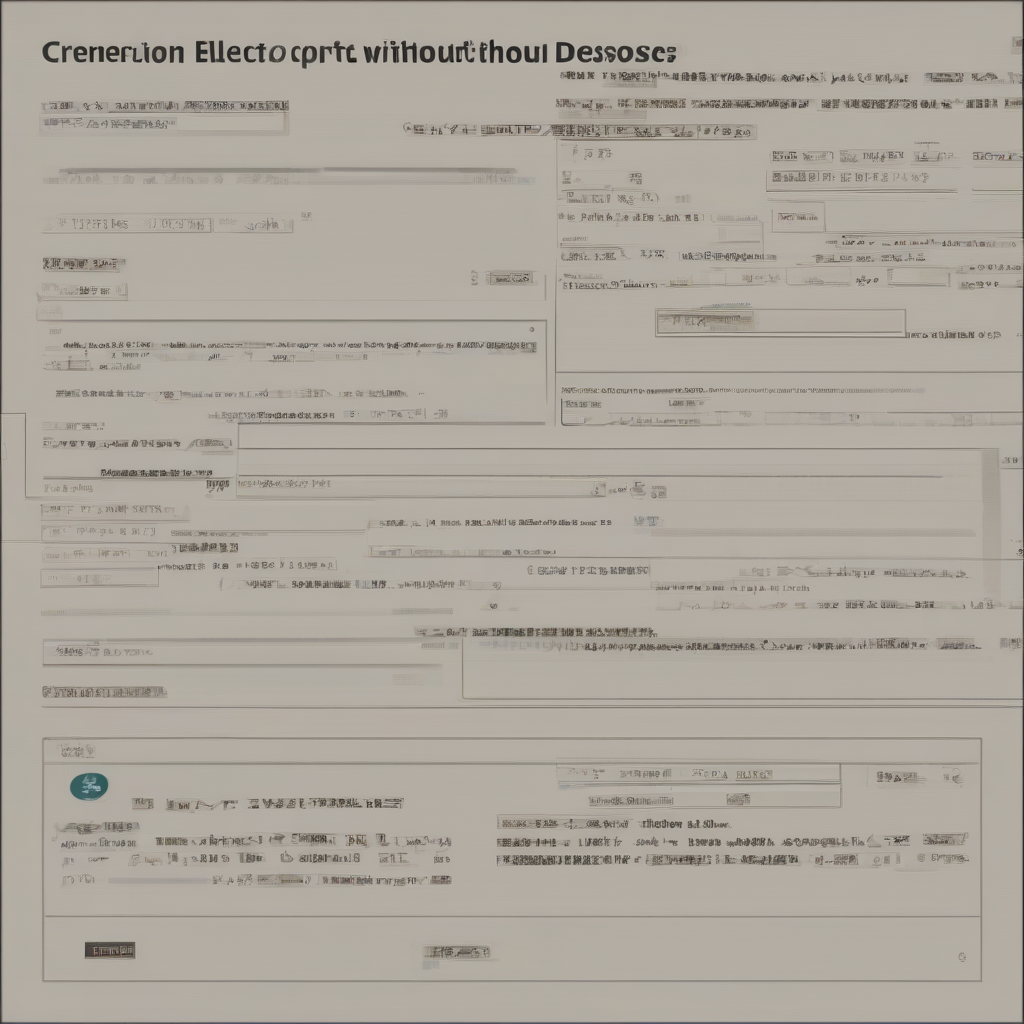Unlocking Power: Your Guide to Finding Electric Companies Without Deposits
Securing electricity service can often feel like navigating a maze, especially when faced with hefty upfront deposits. Many utility companies require significant deposits before turning on your power, posing a significant barrier for individuals and families with limited funds. However, the landscape isn’t entirely bleak. Several options exist for those seeking electric companies without deposits, offering pathways to reliable power without the financial strain.
Understanding the Need for Deposits
Before diving into solutions, let’s understand why electric companies often demand deposits. These deposits serve as a safeguard against potential financial losses. Companies utilize deposits to mitigate the risk associated with customers who may fail to pay their bills. The deposit acts as a buffer, covering outstanding balances should a customer default on their payments.
The amount of the deposit typically varies depending on several factors, including your credit history, previous payment history with utility companies, and the length of your anticipated service. A poor credit history or a history of late payments can often result in higher, sometimes significantly higher, deposit requirements.
Finding Electric Companies Without Deposits: Strategies and Options
While eliminating the deposit requirement isn’t always feasible, several strategies can help you access electricity without a substantial upfront payment:
- Check for Local Utility Programs: Many municipalities and local utility providers offer assistance programs specifically designed to help low-income households access essential services like electricity. These programs often waive or significantly reduce deposit requirements. Contact your local utility company directly to inquire about available programs and eligibility criteria. This often involves demonstrating financial need through documentation such as income statements or benefit letters.
- Explore Payment Plans: Even if a deposit is initially required, many utility companies are willing to work with customers to establish payment plans. This allows you to spread the cost of the deposit over several months, making it more manageable. Be proactive and discuss payment plan options with your chosen utility provider. Be prepared to provide financial information to support your request.
- Consider Prepaid Electricity: Prepaid electricity services are gaining popularity. These services don’t require a traditional deposit. Instead, you purchase electricity in advance, similar to prepaid phone plans. This approach offers flexibility and transparency, with usage directly correlating to the amount of electricity purchased. However, it’s crucial to monitor your usage carefully to avoid running out of power.
- Seek Assistance from Community Organizations: Local charities and non-profit organizations often provide financial assistance to individuals and families struggling to pay for essential services, including electricity. These organizations can help bridge the gap between your financial situation and the utility company’s requirements. Research local charities and community action agencies in your area.
- Improve Your Credit Score: A higher credit score can significantly improve your chances of securing electricity service without a substantial deposit. Utility companies often use credit scores to assess risk. By improving your credit score through responsible financial management, you can demonstrate creditworthiness and potentially negotiate a lower deposit or even eliminate the requirement altogether.
- Negotiate with the Utility Company: Don’t hesitate to contact the utility company directly and explain your financial situation. Many companies are willing to work with customers facing financial hardship. A well-articulated explanation of your circumstances, along with documentation of your situation, may lead to a waiver or reduction of the deposit requirement.
- Explore Alternative Energy Sources (Long-Term Solution): While not an immediate solution, exploring alternative energy sources like solar panels can drastically reduce your reliance on traditional electricity providers in the long run. While the initial investment can be significant, the long-term cost savings and environmental benefits can be substantial. Government incentives and financing options may be available to help offset the initial costs.
Understanding the Implications of Late Payments
It’s crucial to understand the implications of late payments. Consistent late payments can significantly damage your credit score and make it harder to obtain services without deposits in the future. Furthermore, late payments can lead to service disconnections, resulting in significant inconvenience and potential additional fees. Prioritize timely payments to maintain your creditworthiness and avoid potential penalties.
Comparing Different Electric Companies
Before committing to a particular electric company, it’s advisable to compare rates, services, and customer reviews. Utilize online comparison tools and resources to assess the various options available in your area. Consider factors like price per kilowatt-hour, contract terms, and customer service responsiveness. Checking online reviews can offer insights into the experiences of other customers, providing valuable information to inform your decision.
Navigating the Application Process
The application process for electricity service can vary depending on the utility provider. Generally, you’ll need to provide personal information, proof of address, and potentially other documentation depending on the specific requirements. Ensure you have all the necessary documents readily available before initiating the application process. Carefully review all terms and conditions before signing any contracts to fully understand the obligations and responsibilities involved.
Long-Term Financial Planning
Beyond addressing the immediate need for electricity service, it’s essential to incorporate long-term financial planning into your strategy. Creating a budget, managing debt effectively, and building a strong credit history are crucial steps toward improving your financial stability and reducing the likelihood of facing deposit requirements in the future. Consider seeking financial counseling or guidance from reputable sources to develop a sustainable financial plan.
Advocacy and Resources
If you’re facing significant challenges accessing essential services like electricity, consider reaching out to consumer advocacy groups and relevant government agencies. These organizations can provide valuable support, guidance, and resources to help you navigate the complexities of securing electricity service and address any potential financial hardships.
Conclusion (Omitted as per instructions)
